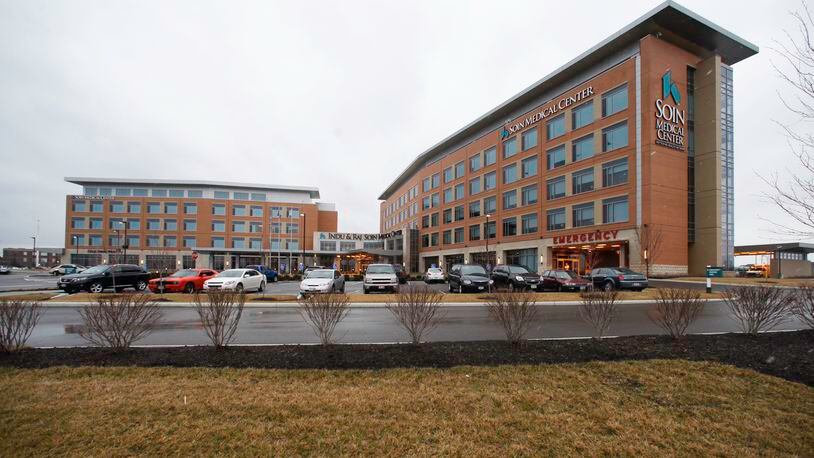SPECIAL REPORT: Million dollar paychecks for top hospital CEOs
For example, Kettering Health Network President Roy Chew — who earned $1.07 million salary and incentives in 2015, and was one of the Top 5 highest-paid hospital executives in the area — began his career in respiratory therapy at Kettering Medical Center as the clinical coordinator for the respiratory therapy technician program.
And Mary Boosalis, president and CEO of Premier Health, is among a handful of local hospital executives who began their careers in nursing, working as a registered nurse for 10 years before coming to Premier’s Miami Valley Hospital in 1986 as a management fellow.
INTERACTIVE DATABASE: What do healthcare executives earn?
Boosalis, who also ranked among the Top 5 highest-paid, earned $867,424 in salary and incentives in 2015 as Premier’s executive vice president and chief operating officer, before assuming her current role.
Representatives of both hospital systems say mangers with clinical backgrounds bring unique benefits to their organizations and are largely responsible for improving quality measures, such as reducing unnecessary re-admissions, which directly affect their hospitals’ bottom lines.
SEE THE TOP 15 HIGHEST PAID IN MIAMI VALLEY
“Our foremost important measures are quality and safety of the patient,” said Phil Parker, president of the Dayton Area Chamber of Commerce and a member of the Kettering board’s compensation committee. “We’re recruiting and promoting those with clinical experience because they have the best understanding of how to perform in terms of quality care. Over the years, they have have also learned how to make sure they manage the other goals.”
A slew of recent studies and medical literature indicate physician-led hospitals often show the best quality outcomes, and Medicaid and Medicare compensate hospitals on the basis of achieving certain quality goals.
RELATED: Ballooning bonuses boost pay for hospital CEOs
“At Premier, we have a mantra: “We want to be physician led and professionally managed,” said Barbara Johnson, vice president of human resources at Premier, noting that the system has established a training program to bolster the role of physicians and other clinicians as leaders in the hospital system.
Still, “not all physicians want to do it,” Johnson said. “They say that’s not why they went to medical school. But very often, you’ll have a physician who wants to be mentored by a senior leader, and we have a formal mentoring program so that we can link our medical staff with one of the senior leaders so they can become familiar with what it’s really like to lead at this level.”
How we got the story
This media outlet obtained hundreds of public IRS records for local nonprofit hospitals to report on the salaries and incentives awarded to hospital CEOs and executives. All nonprofits are required to disclose financial and salary information to the IRS, in exchange for their tax-exempt status. Count on us to continue our in-depth coverage of health issues that impact your pocket book.
About the Author
